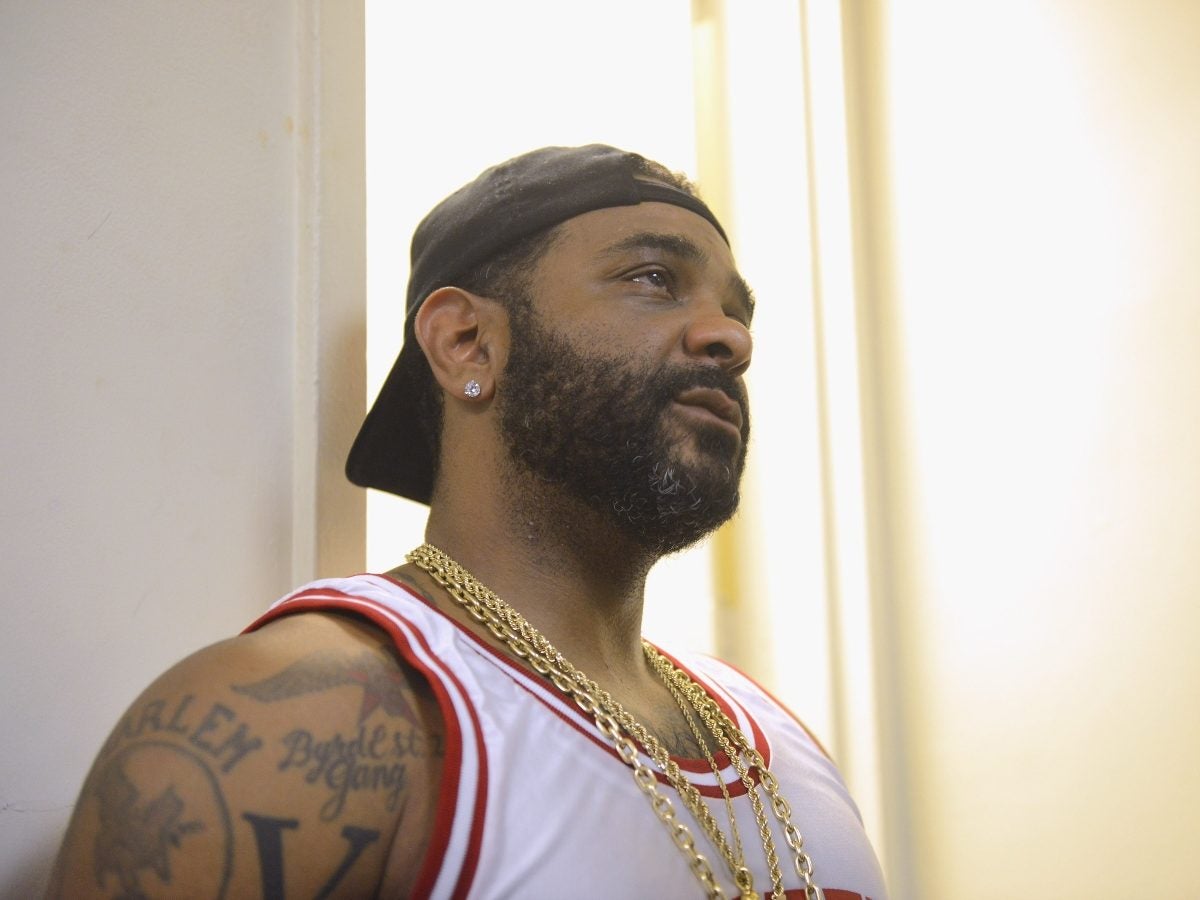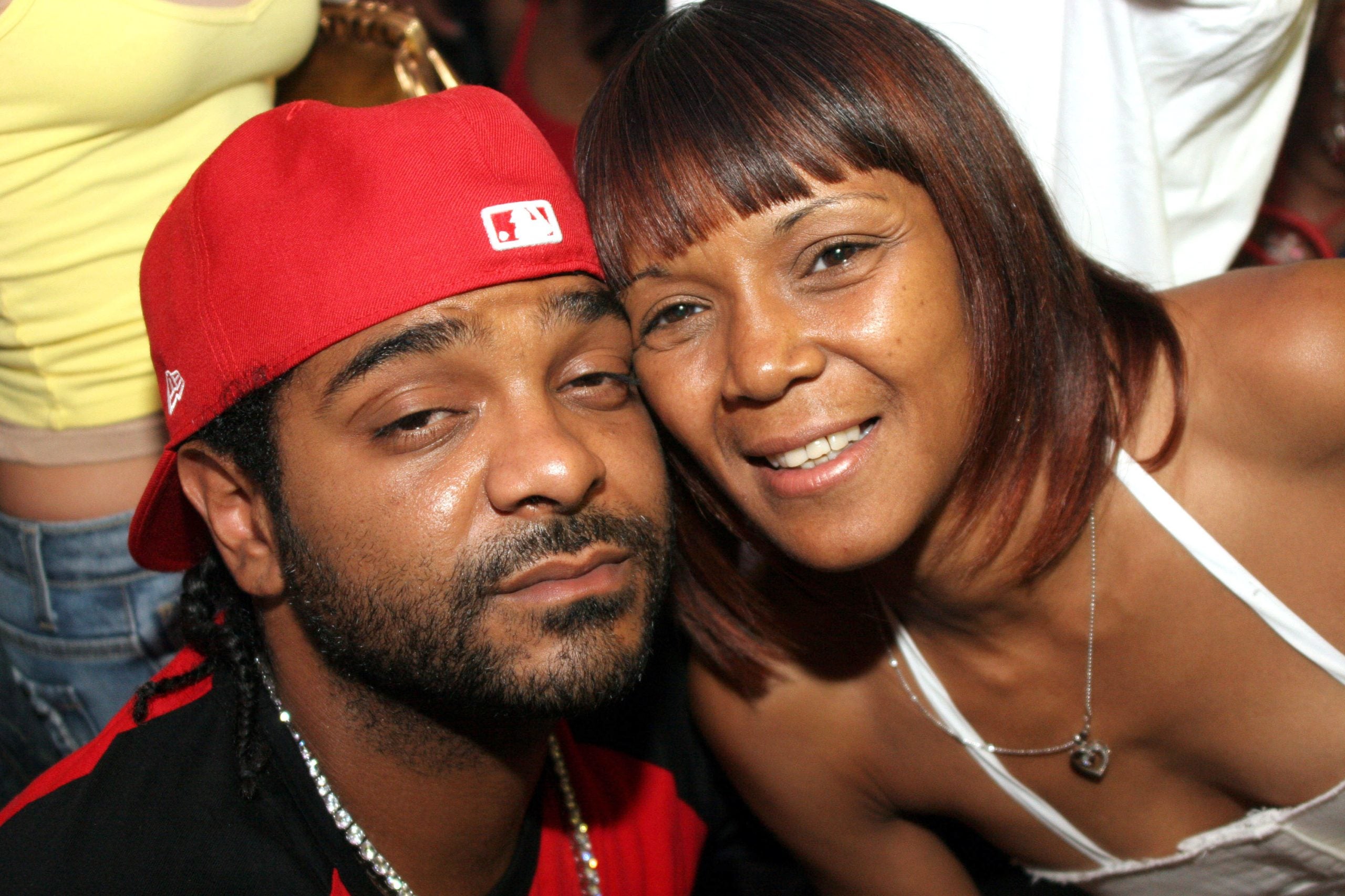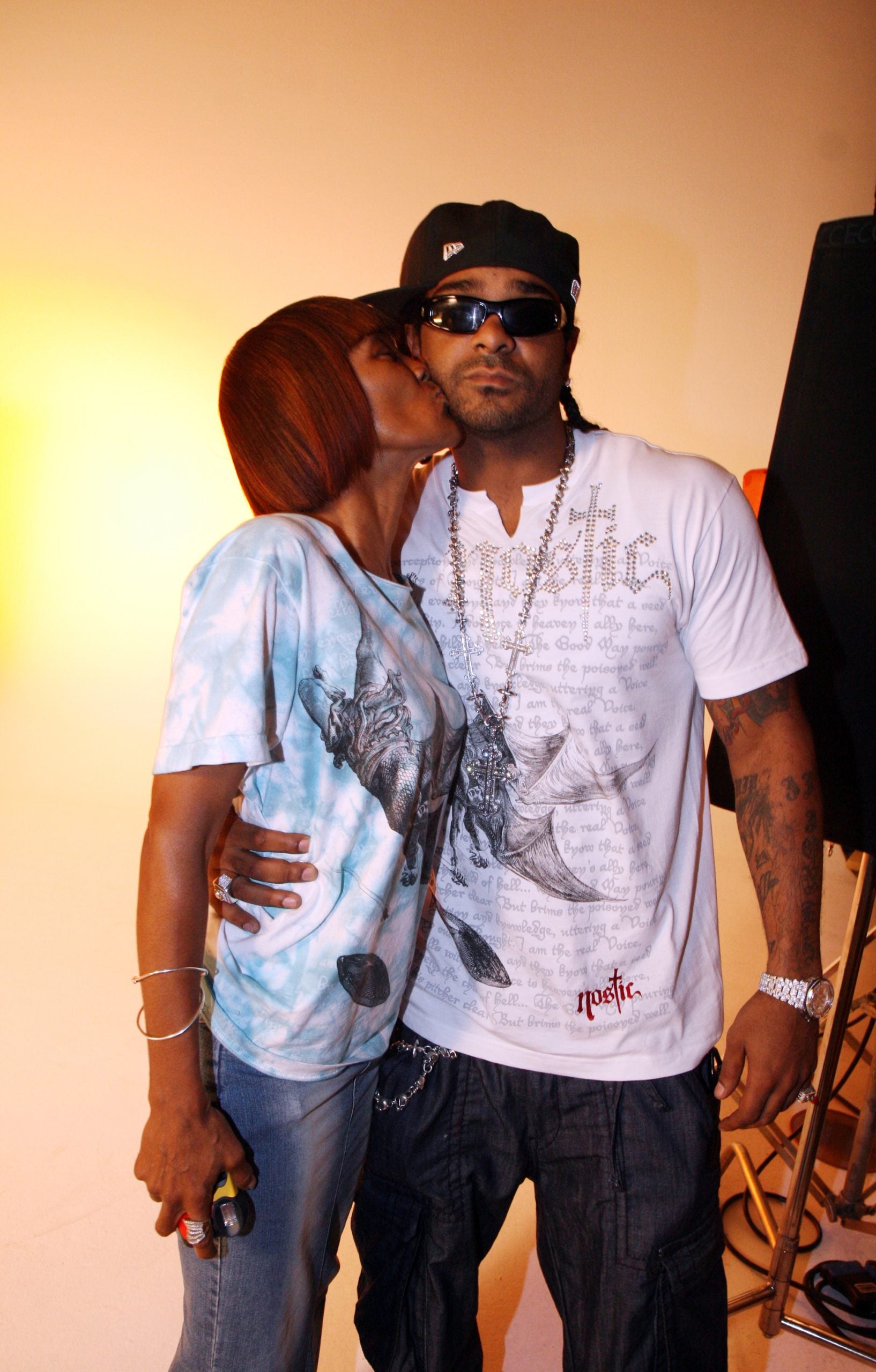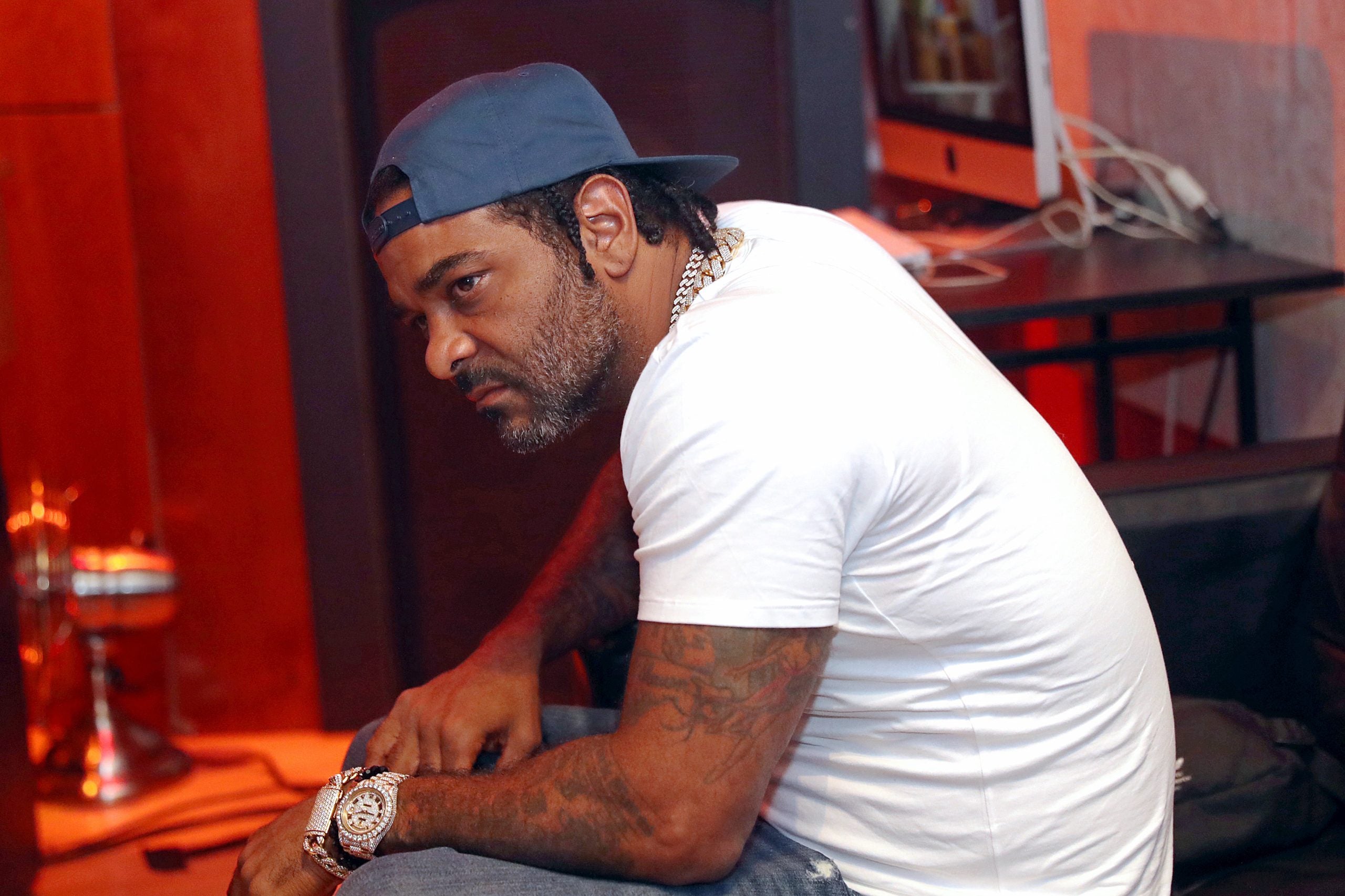
Last week, rapper Jim Jones found himself trending on social media and making a number of headlines after he shared a disturbing anecdote from his childhood. As a guest on the Lip Service podcast, a show about sex and relationships, Jones revealed that his mother was his first teacher when it came to sex.
“I learned my sex education from my mother,” Jones said. “She taught me everything about sex–my first condoms. My mom taught me how to kiss when she was younger.”
Assuming Mama Jones provided verbal instruction, Angela Yee, creator and host of the show, asked Jones, “What did she tell you to do?”
Jones replied, “She showed me how to tongue kiss. It wasn’t no instructions she showed me with her mouth.”
Yee: “She kissed you?!”
Jones: “That’s my mother!”
Jones rationalized the behavior saying his mother had him at 17 years old. “Look at all the babies having babies now, it’s like they have a little sister or brother more than they have a child.”

Surprisingly, aside from Yee’s question about whether or not Mama Jones actually kissed him, the hosts kept the conversation going. Yee asked Jim if he found tongue kissing gross the first time he did it.
“The first time I tongue kissed a girl, yeah. But with my moms, it didn’t phase me.”
Naturally, Jones’ revelation sparked a great deal of discussion. Listeners were troubled – and some even validated –given Mama Jones’ issues with her son’s longtime partner Chrissy. And there were others who would have preferred to move on from the topic altogether.
Jones, unsurprisingly, was one of them. After the interview clip made its rounds, he released a video of his own claiming that the whole thing was a joke and the media was “weak” for trying to project a certain narrative.
Mama Jones, in an interview with The Shade Room, claimed that she didn’t actually put her tongue in her son’s mouth because she’s not a “nasty mother.”
“It was a way of showing you how to tongue. He licked out his tongue. I licked out my tongue. It wasn’t no mouth to mouth,” she explained.
With conflicting explanations from both Jim and his mother, the people of the internet issued a collective sideeye and moved on to the next story. And I get it. Most of us don’t want to dwell on that type of imagery.
Still, the topic deserves a little more attention because while there are no confirmed cases or admission of abuse between Jones and his mother, there is still a pervasive attitude that the sexual abuse of Black boys at the hands of older Black girls and women is merely a rite of passage.

In her 2004 book, No Secrets, No Lies: How Black Families Can Heal From Sexual Abuse, journalist and former ESSENCE executive editor Robin Stone reports that 1 in 6 African American boys will be the victim of sexual assault by the time he is 18. This number is particularly alarming when you consider the fact that many sexual assaults go unreported. For many Black boys and men this may be because they don’t even register the incidents as assault.
I can’t count the number of times I’ve heard a Black man, famous or not, recall his first sexual experiences not realizing that he wasn’t “losing his virginity,” he was being coerced, abused, or even statuatorily raped, often by an older girl or woman in a position of power and authority.
Licensed marriage and family therapist (LMFT), Ibinye Osibodu-Onyali, who practices in Texas and California, says these instances go unreported because of what society has said about Black men and their sexuality.
“There’s this culture [that says] Black men are supposed to be sexual beings,” Osibodu-Onyali says. “The idea, [for mothers], is if my Black son [has a sexual experience with a woman] then I know he’s not gay. God forbid my child is gay because the whole world is going to end. A Black man being sexual shows me, as a mom, that my son is indeed a man. So it doesn’t matter where he’s getting his sexual encounters from, whether it’s an older woman or not, as long as it’s not another man. There’s this idea that your manhood shows up in your sexual identity or sexual behaviors. And it’s okay.”
But Osibodu-Onyali is clear that the experienced Jones initially described is far from okay.
“He’s been victimized and he doesn’t know that he’s been victimized,” Osibodu-Onyali said. “[Jones] actually came out to tell this to people, which tells me he doesn’t think there’s anything wrong with this behavior.”

Fellow California LMFT Lamonte Coke says a mother should be a young boy’s first love and mentor. But when you start teetering into physically demonstrating romantic acts, you’ve crossed a line.
“You’re dealing with an immature mind, raging hormones,” Coke says. “It’s his mother’s responsibility to remain appropriate. Physically demonstrating is way off.”
Osibodu-Onyali says experiencing this type of behavior from a parent can blur boundaries in romantic situations in the future.
“Once those boundaries have been crossed, it could negatively affect the way you respect other people. A mom doing anything to a child could never be consensual because there is that power differential to start with. When you’ve already been abused, you could be more likely to abuse somebody else. But you might not even know that it’s abuse because mom did it to me and it was okay. Why do I need to ask for consent? My mom never asked me for consent? It becomes really hard for you to show respect to others.”
Coke says it’s important for children to experience romantic milestones with the fear, anxiousness and trepidation they naturally incite. And while parents can offer verbal guidance, they should not attempt to shape those experiences in the home.
“Let them figure it out on their own,” Coke says. “Let them be nervous and be scared, try it and fail and feel embarrassed. Let them go through those range of emotions that deter them from going straight forward all the time. You’re stealing the true raw nature of what that experience should be about. It’s inappropriate and irresponsible to put a child in that situation.”
In the midst of the discussion of Jim Jones and his mother, people were reminded of another phenomena that often occurs in Black mother and son dynamics: emotional incest. The term, according to Psychology Today, refers to parents attempting to have their emotional needs met by a child instead of an adult partner.
The behavior is common particularly when one parent is physically or emotionally absent–as was the dynamic in Jones’ homes as is the case in many Black homes across the country. Coke says this dynamic may present itself as the son begins to grow and mature.
“Sometimes feelings get misplaced and mishandled,” Coke says. “There’s no man in the house, no father in the picture, the young man is getting older and starting to act like he’s the man of the house, he might do something to make the mom feel safe. Lines get crossed.”
Even if most mothers won’t go as far as crossing a physical boundary, Osibodu-Onyali says some will not only create a romantic dynamic, but the corrective nature inherent to parenting gets called into question.
“They will create a situation where ‘My son can do no wrong. I’m going to protect him no matter what he does.’ When you listen to them, it’s almost like they’re talking about their husbands.”
For mothers who would like to serve as a guide and mentor to their sons without blurring any lines, Coke suggests that you let your own dating life be an example.
“For single mothers, who don’t have a man living in the home, show it while you’re dating,” Coke says. “Make a man court you in a certain way so that your child can see the way it should be done. If there are mistakes made, be open about it.”
And for those who would like to appropriately model how to treat romantic partners but might not be dating, you can do so with exercises that still maintain a physical barrier.
“Take your son on a date,” Coke says. “Show him what it’s like to go out to dinner, sit down and talk. Teach him to open the door for you. Teach him those great habits young and that will transfer over into his young life and his adult life.”